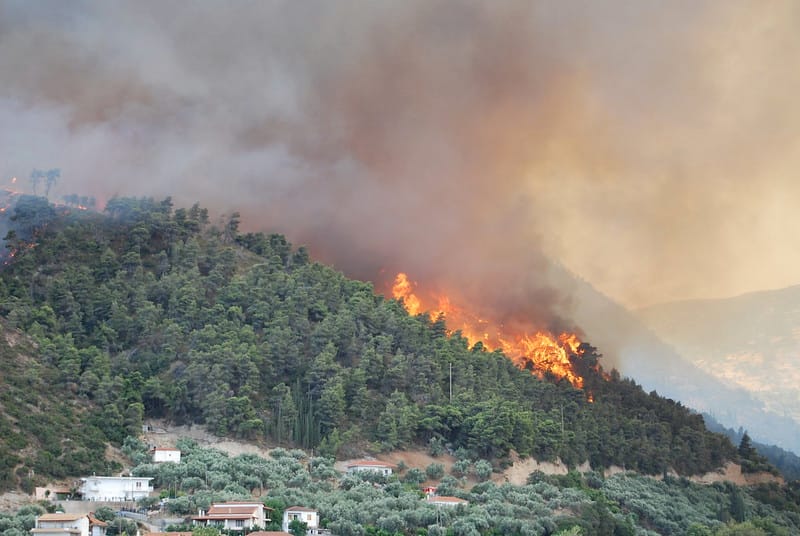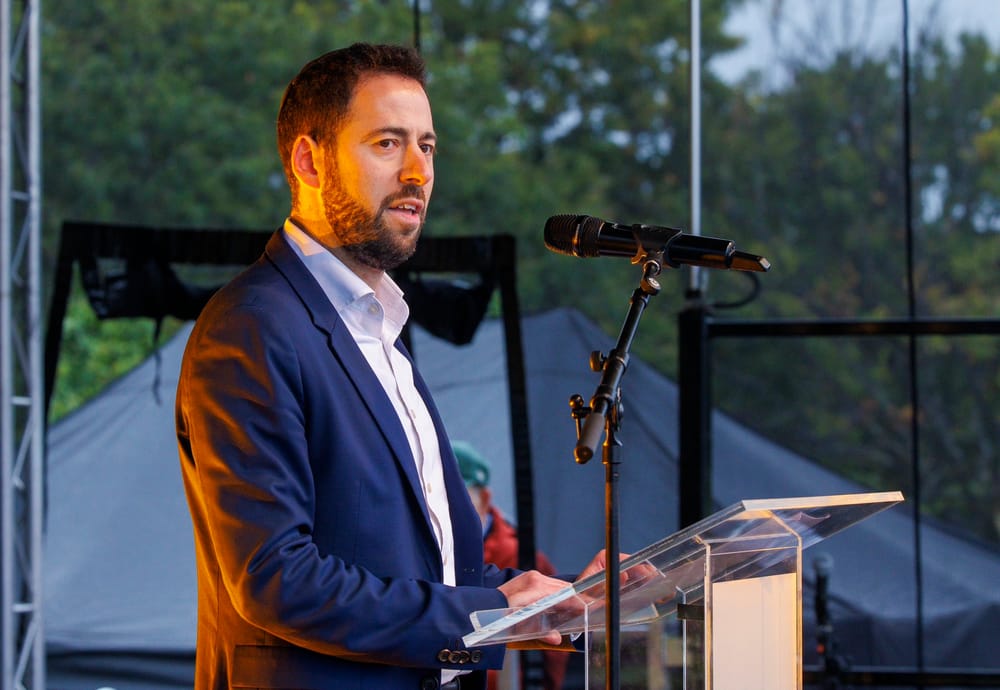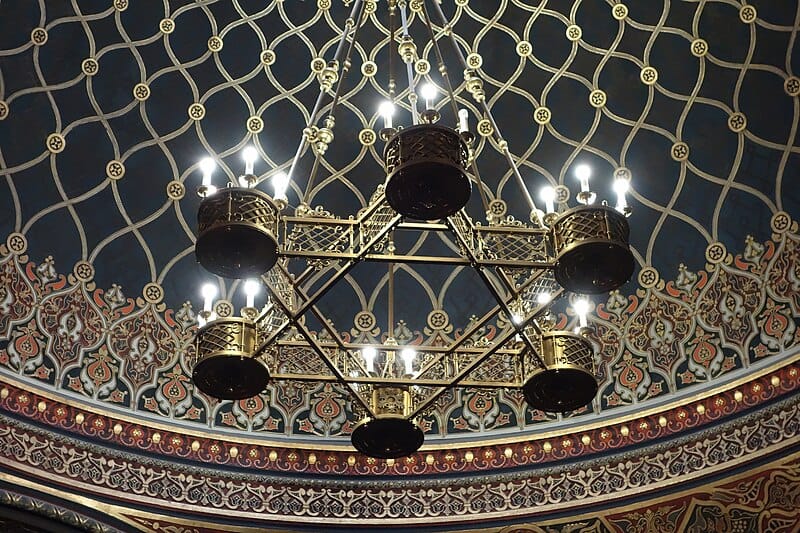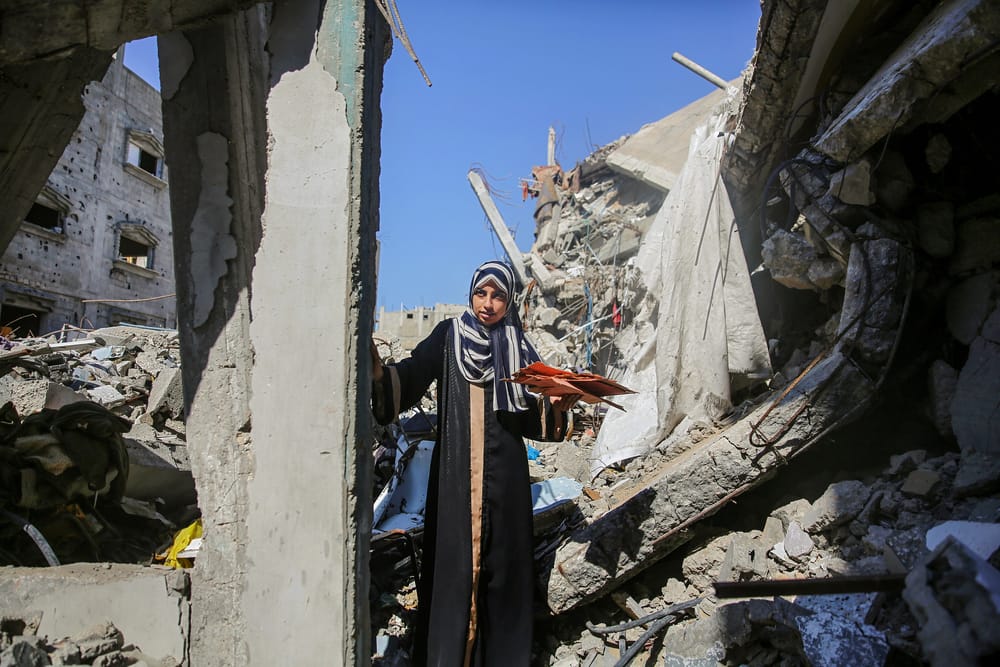The climate crisis is our most urgent existential threat
While it might feel like the hounds of Brexit and antisemitism are snapping at our heels, we are in danger of letting them chase us off a cliff edge.

For most British Jews, this election is about two issues: Brexit and antisemitism. In a poll commissioned by the Jewish Leadership Council and published in Jewish News in October, 31% of British Jewish voters cited Brexit as their priority, while for 19%, it was antisemitism (another 7% prioritised fighting Labour, whereas the economy and the NHS came in at just 9% and 4% respectively).
The first concern is unsurprising. The ravening maw of Brexit has consumed vast quantities of political and popular attention since the referendum, and Jews have not been spared. Indeed, our community appears to have been particularly prone to fears about Brexit: perhaps due to the xenophobia it seems to amplify, or our own historic reliance on Britain’s open borders. Either way, only 6% of those surveyed by the JLC voted Lib Dem at the last election – 24% plan to do so now.
Even more understandable is the second concern. The scarlet thread of pogroms and persecution, expulsion and inquisition that runs throughout Jewish history needs no unravelling here. Suffice to say that history has taught us to be acutely aware of anti-Jewish sentiment. While polls show that Conservative supporters are more likely to hold antisemitic beliefs than their Labour counterparts, there is no doubt that a significant perceived threat currently resides with the latter party. Against this backdrop, it’s no wonder antisemitism has dominated Anglo-Jewry’s electoral consciousness.
Yet we risk letting our community’s reflex towards security in the short-term override our instinct towards continuity. While it might feel like the hounds of Brexit and antisemitism are snapping at our heels, we are in danger of letting them chase us off a cliff-edge. Because missing from the survey quoted above is the biggest existential threat we as British Jews face: the climate crisis.
As this glaring omission proves, it is terrifyingly easy to let the climate slip down our list of communal priorities: perhaps because it lacks the magnetism of party politics; perhaps because the prospect of climate apocalypse is too much to bear; perhaps because we are in thrall to journalists who find it easier to characterise human interactions than they do the vast geological shifts that are jeopardising our existence. Yet averting our gaze will not alter the inconvenient truth.
Jewish environmentalists have long invoked the ethical imperative of l’uvdah u’l’shamrah (serving the Garden of Eden). But I am not here to argue for planetary horticulture or animal husbandry. I am here to call for pikuach nefesh (saving life). It’s not time to “care for”, “tend to” or “look after” life on our planet – it’s time to fight for its survival.
It shouldn’t need spelling out – yet shockingly, it still does – that a livable planet is the sine qua non of our existence, without which none of our political concerns matter. There is no Jewish community if there is no humanity – and that is an appallingly real prospect.
We are currently in the sixth mass extinction, having lost 60% of our animal population since 1970. One group of scientists has put the likelihood of humans’ dying out by the end of the century at 1/20. The World Bank estimates that 140 million of us will be displaced by 2050 due to rising sea levels, hurricanes, heatwaves, droughts and wildfires, whose attendant chaos will imperil oppressed people, Jews among them, far more than any current political grouping. We have 10 years to halve emissions to avoid overstepping 1.5 degrees of warming or unleash “untold suffering” on our planet – but several countries (including ours) are on course to breach that limit by 120%. Just today, the European parliament declared a global climate and environmental emergency.
Somewhat belatedly, the Jewish community is beginning to mobilise. The Eco Synagogue network aims to change the relationship of synagogues with the environment; Sadeh, the first Jewish farm in the UK, promotes environmentalism through connection to the land; the Jewish Vegetarian Society, through our diets. The Commonwealth Jewish Council’s campaign ‘Small Islands: Big Challenges’, which highlights the danger climate change represents to island nations, was supported by the Orthodox Chief Rabbi. All these initiatives are linked by Shema, the new Jewish climate change hub.
While it is encouraging to see the Jewish community getting its own house in order, it’s time to look outside. A midrash of Rabbi Shimon bar Yochai illuminates why. It tells of a passenger on a ship who began drilling a hole under his seat. His fellow travellers begin to panic. “What’s the problem?” he asks. “The hole’s only under my seat.” We cannot content ourselves with our keeping our own cabins shipshape while governments and corporations hack through the hull.
My desire to make more than grassroots-level change is why I am part of Extinction Rebellion (XR), an organisation which acknowledges that at this pitch of crisis, global decision-makers must set in motion fundamental systemic change. In the wake of the failure of conventional methods to reduce emissions, we call for acts of peaceful mass civil disobedience that make it impossible for governments, companies and the general public to ignore our demands: education about the crisis; rapid decarbonisation; and a Citizens’ Assembly to make sure both happen equitably.
The impulse towards hope in the face of adversity feels deeply Jewish – perhaps that’s why I feel impelled to enact my environmentalism as part of Extinction Rebellion Jews. During the mass protests in spring and autumn, we sang, studied and prayed together, bearing banners calling for tikkun olam (“healing the world”). It’s a term often used figuratively: its original Mishnaic use referred to amendments to the law made to keep society functioning. It has since become shorthand for social justice, the performance of mitzvot in order to create a better society. But right now, the significance is literal. Our planet is sick, and we must heal it.
As we do so, we must bring to mind that other essential Jewish value, one that has sustained our community throughout millennia; one we practice every time we share stories and songs, feasts and festivals: l’dor vador, from generation to generation. Should we fail to protect the planet now, there may be no next generation. British Jews cannot allow seemingly more pressing concerns to distract us from the most pressing of them all. Nothing less than the future of life on Earth is at stake, and the window of opportunity to save it will have all but closed come the next election. In the words of Rabbi Hillel: if not now, when? ▼
Shulamit Morris-Evans is an activist with XR Jews and an au-pair in Madrid.
Author
Shulamit Morris-Evans is an activist with XR Jews and an au-pair in Madrid.
Sign up for The Pickle and New, From Vashti.
Stay up to date with Vashti.



